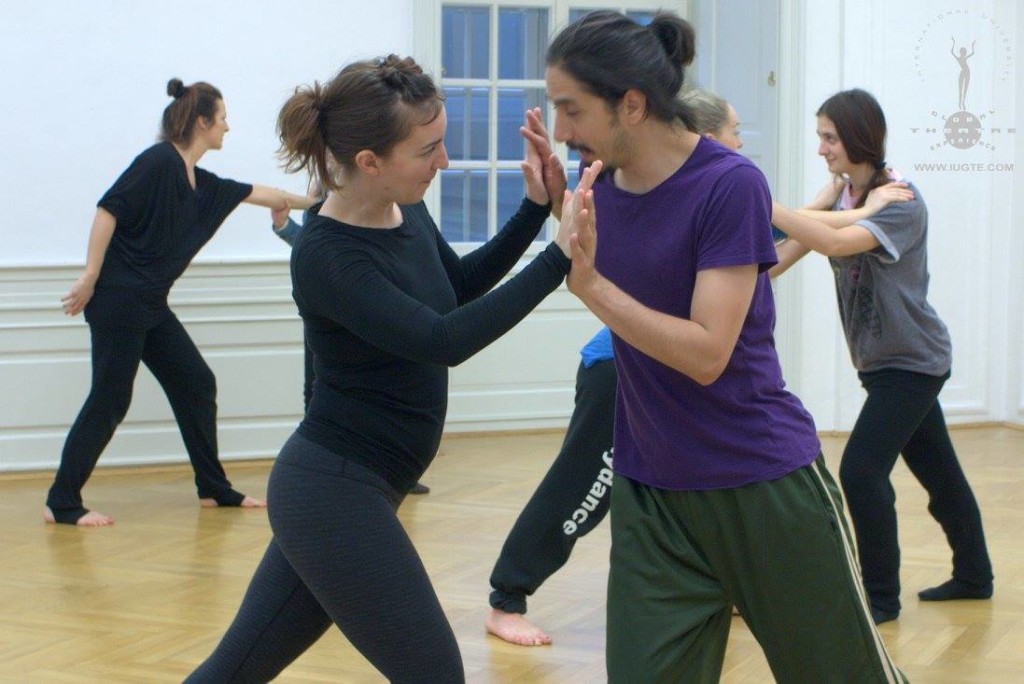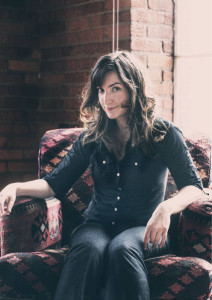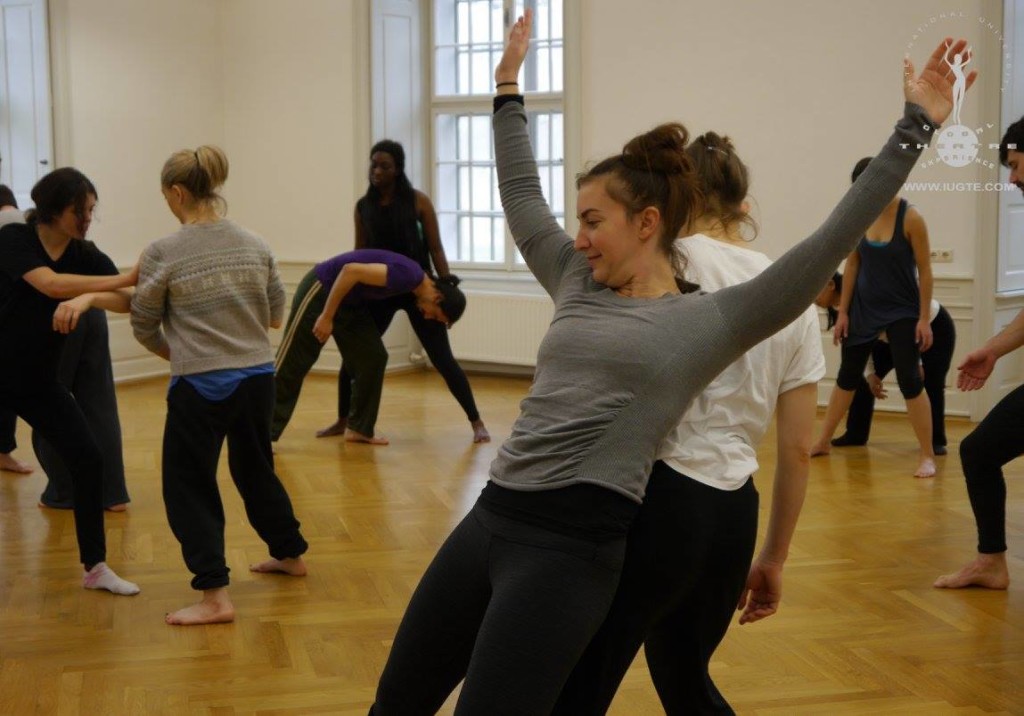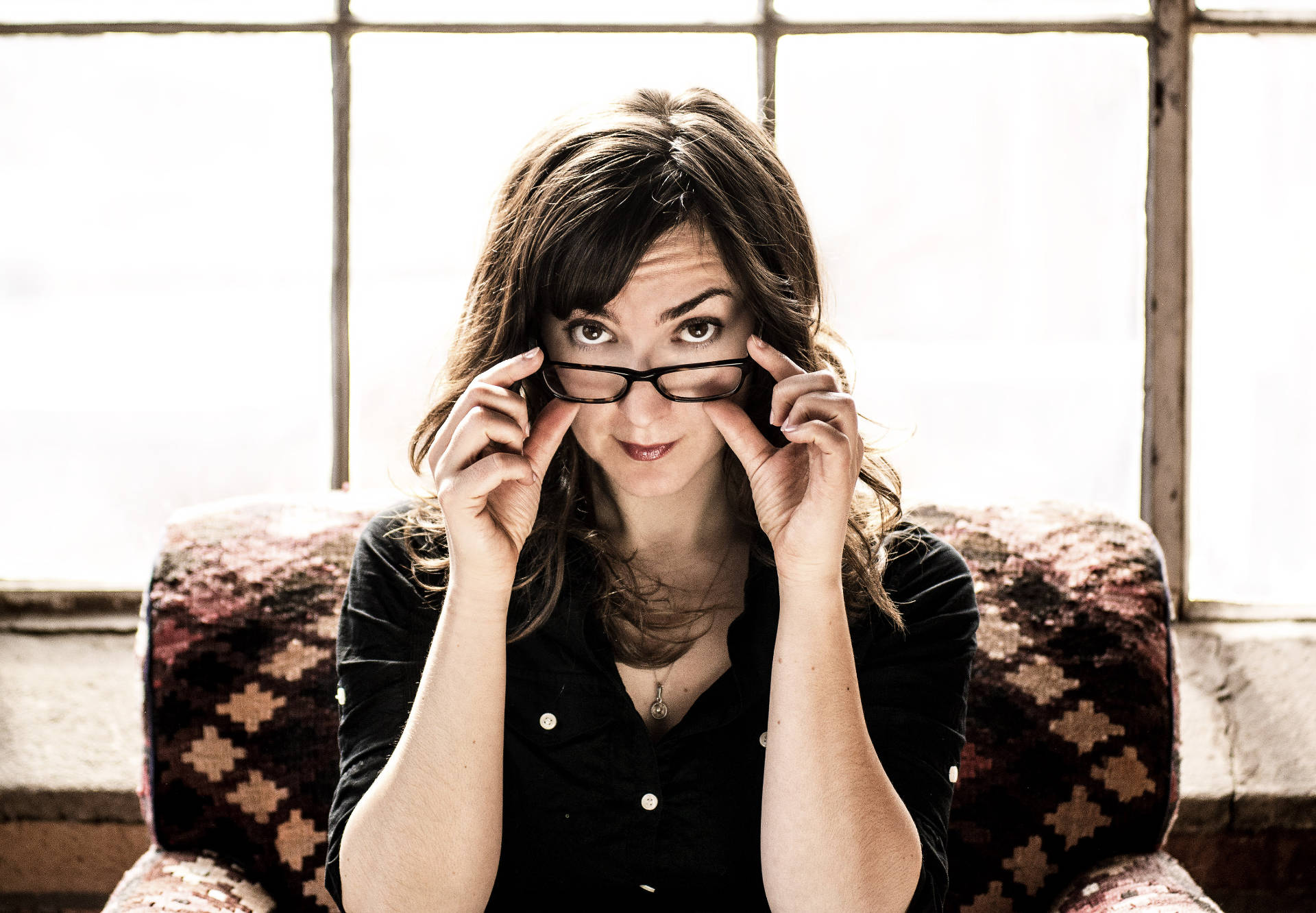Looking beyond the limitations of where she lives, Alex Karolyi is meeting new challenges with a fresh perspective.
Alex Karolyi has some excellent advice for up-and-comers looking to pursue a career in the arts, “you’ve got to stick with it if you really want to be in it.”
It would sound like an old trope coming from anyone else, but Karolyi has consistently had to forge new paths throughout her career. Today, what some might perceive as an insurmountable challenge, Karolyi seems to take as a chance to innovate.
Getting Started with Shadowpath
Karolyi founded Shadowpath in 2002, as an independent theatre company in York Region, just north of Toronto. At the time, she admits she didn’t really know how to make a professional theatre company work in a suburban community. Even with a population of a little over a million residents, the theatre scene in the area is still fledgling, limited both in following and by a handful of expensive venues. For the first few years of Shadowpath’s existence, Karolyi was limited to one production in a theatre a year, or she would find a way to produce outside York Region — often taking her talents to Toronto, where space is more accessible.

Karolyi (front left) at IUGTE in Austria.
According to Karolyi, space is one of the biggest challenges for artists today. “It’s a bit of a crisis in that sense – we do lose a lot of talent because [artists] can’t want to find a way to make it work, and they just go somewhere where it’s already working.”
Her breakthrough came when she discovered she could produce theatre in everyday places like cafes, wineries, restaurants and hotels — something Karolyi says she came into accidentally.
“It was actually the response to the obstacle of being a theatre producer [in York Region] and not being able to afford the Markham Theatre or the Newmarket Theatre, and even if I got a grant and could afford to do that, filling them is nearly impossible with 500 seats a night,” she says.
Karolyi found that, being a grassroots organization, it was much more palatable to sell smaller venues of 50 or more seats, and since 2006 she has been producing a series called Plays in Cafes, which often happens in even more intimate venues. Plays in Cafes is produced multiple times a year and emphasizes new works by often new writers who submit short scripts, which are then presented across York Region, usually in three different venues.
From there, Karolyi has also found success in venues such as wineries, where she produces a series aptly called Readings in Wineries.

Alex Karolyi, Artistic Director, Shadowpath.
“It’s really simple, really casual,” she explains. “It’s an old winery in Stouffville, and you sample some wine if you like, and there’s a play reading.” For this setting, Karolyi enlists both professional actors, who often take the lead roles, and also attendees at the reading, often filling 15 to 16 characters. “We just fill it up with anyone who feels brave enough, or drunk enough, to read a smaller role. It’s really that simple, and I think that’s why a lot of these events work — because you’re experiencing theatre in a lot of different places and…integrating the creative process amongst audience and professional actors alike, and sharing in that artistry.”
By all accounts, Shadowpath hit its stride and became a resounding success.
Going Global
In 2013, Karolyi says she became fascinated with the idea of artists going global. Being a regional artist she understood the limitations of where she worked, but had always been able to take on those challenges, and turn limitations like space and audience size into innovative productions. But even successful artists risk burnout without a chance at revitalization.
To reenergize herself, she wanted to get away, meet international artists and check out the arts scene on a global level, so that she could return with the high level of passion and focus community leaders require.

“It was great because I was studying something that was very different to me.”
Later that summer, Karolyi traveled to Hungary and Scotland on an International Artist Residency grant from the Ontario Arts Council, where she saw festivals and networked with other artists. “It had a lot of really good results,” Karolyi says. “I came back and started to do programs and new initiatives.”
In fact, she enjoyed the experience so much she began applying to another granting organization, Metcalf Foundation, for a regional artist renewal grant, awarded to artistic leaders in the community who could affect their sector and were running artistic organizations. Karolyi fit the bill perfectly. She applied to study a physical theatre workshop in Austria offered by the International University of Global Theatre Experience (IUGTE). The program would give her a week of training and connect her with other international artists. The grant was approved and Karolyi was on her way.
While in Austria Karolyi immersed herself in the culture, even living in a castle. “It was great because I was studying something that was very different to me,” Karolyi says. “I have a strong dance background but it had been a long time since I had gone back to my roots in that way, and that’s what the renewal grant is all about - going back to the reasons you became an artist in the first place.”
Even though the course was taught in English, with a Russian instructor and participants from all over the world, many times the communication was done through gestures.
“Physical theatre is such a great way to break those [language and cultural] barriers, because you’re working hands-on in people’s personal space,” she says.
Pursuing Balance as a Regional Artist
Part of the benefit of artists going global is the chance to meet people and make connections with artists you may never have been able to work with. Based on her connections with two other artists from the workshop in Austria, Enda Moran from Dublin and Greg Mitchell from Los Angeles, the trio have formed the Guerilla Shadow Collaboratory, and they are applying to a festival in Singapore as their debut.
Karolyi is very frank about her aspirations for the collaboratory and Shadowpath. “It’s all very exciting right now, but if we don’t get [the Singapore festival] we just work on the next thing,” she says. “One of my goals now is for Shawdowpath to have a global footprint so we can have those exciting opportunities for regional artists.”
She also wants to explore her own family history (her father escaped the Hungarian Revolution of 1956) through playwriting and incorporating the techniques of physical theatre she has learned. Karolyi says it’s a powerful story and nothing like the material usually performed by Shadowpath, which is typically more lighthearted.
You could see it as another challenge, but Karolyi has framed it again as an opportunity; an opportunity to provide a greater range to Shadowpath, and to inspire with more universal programming.

